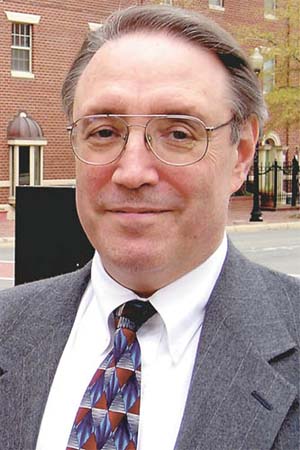2007.05.02: May 2, 2007: Headlines: COS - Brazil: Staff: Medicine: Crime: Pain: Jurisprudence: New York Times: John Tierney writes: The Hurwitz Jurors Explain Further
Peace Corps Online:
Directory:
Brazil:
Peace Corps Brazil:
Peace Corps Brazil: Newest Stories:
2007.03.26: March 26, 2007: Headlines: COS - Brazil: Staff: Medicine: Crime: Pain: Jurisprudence: International Herald Tribune: Retrial of pain Doctor Hurwitz renews debate on M.D. prosecutions :
2007.04.28: April 28, 2007: Headlines: COS - Brazil: Staff: Medicine: Crime: Pain: Jurisprudence: Washington Post: Federal jurors in Alexandria found William E. Hurwitz guilty of 16 counts of drug trafficking, determining that he prescribed massive quantities of medicine to patients in chronic pain :
2007.05.02: May 2, 2007: Headlines: COS - Brazil: Staff: Medicine: Crime: Pain: Jurisprudence: New York Times: John Tierney writes: The Hurwitz Jurors Explain Further
John Tierney writes: The Hurwitz Jurors Explain Further

These jurors bought the prosecution’s argument that medical negligence was a crime. They decided that a doctor’s role as a drug cop was so important that even if he had no criminal motive, he should be sent to prison if a group of laymen looked over his records and decided that they would have done it differently. These jurors worked hard, but they had an impossible job. It’s hard enough for a medical review board of doctors to judge a colleague’s actions when deciding whether to revoke his license. It’s hard enough for medical experts to judge negligence when they pore over all the details in a single malpractice case. This lay jury essentially had to decide 19 malpractice cases at once. Hurwitz was a former volunteer medical director for the Peace Corps in Brazil in the 1970's.
John Tierney writes: The Hurwitz Jurors Explain Further
The Hurwitz Jurors Explain Further
By John Tierney
Tags: pain, William Hurwitz
The Hurwitz jurors will not win any popularity contests with the readers of this blog, to judge from the responses to the post quoting the jurors’ reasons for convicting Dr. William Hurwitz. But let me give them a chance to further explain their verdict.
The three jurors I interviewed said they’d worked hard to do their best based on the information they had — which was necessarily limited, given the confines of a trial and their lack of expertise in pain treatment. “Last Friday I left the courthouse thinking we may not have gotten the job done and now I know we didn’t,” Juror 3 told me, citing the additional information about the case and the issues of pain management she picked up after the trial (some of it from the posts and comments here). “I went into this blind and came out wishing I was.”
All three jurors expressed sympathy for Dr. Hurwitz and said they’d be satisfied to see him sentenced to the time he has already served. “Two and a half years is enough,” Juror 1 said. Juror 2 said it wasn’t a juror’s role to decide the sentence but added, “I will tell you that I’m saddened by the fact that those who were selling his drugs have, in most cases, spent less time in prison than Dr. Hurwitz has already served. But, as you know, that cannot be considered when deciding guilt or innocence. Still, if he were released for time served, I would feel justice was served.”
Juror 3 told me, “I do think that two and a half years would be enough time spent in prison. Since I don’t think Dr. Hurwitz has any chance of getting his medical license back, I don’t think there is any threat of him repeating his same mistakes. I also don’t think it’s useful to have him spend 20 years in prison when the actual drug dealers spent an average of less than a few years. Unfortunately, we were not allowed to consider his sentencing in our determination of guilty or not guilty.”
This third juror also offered, via e-mail, an explanation of how they decided to convict Dr. Hurwitz on 16 of the 45 counts of drug trafficking:
We thoroughly examined the evidence in every single case, and there were striking differences in some of the cases in which we decided on a guilty verdict. In many of these cases, it was not necessarily the fact that he knew they were selling their medications, but that he knew they were abusing them. However, as time neared the end of his practice (during which we found many of the guilty verdicts), some of his patients had a number of “red flags”. i.e, they had been arrested for drug trafficking, had 3 or 4 postive cocaine tests in a row, or had called in for several early refills in a short period of time. This is not to say that we found Dr. Hurwitz guilty because he cared for patients that had used cocaine, or that he trusted them when they claimed to have lost their medication. Dr. Hurwitz did take appropriate action when treating certain patients with “red flags” and in those cases we found him not guilty. The guilty verdicts were not based on a single action or inaction that Dr. Hurwitz took, or that he had a lapse in medical judgment, but instead a continuous, deliberate effort to ignore that his patients were using these drugs recreationally or selling them.
I wouldn’t have assessed the evidence that way. I didn’t see any “continuous, deliberate effort” to ignore red flags. Dr. Hurwitz could have been more careful, but what impressed me was how much trouble he took with low-life characters whom most doctors wouldn’t have bothered to treat. When one woman told him she’d lost her prescription at a bridal shower, he called the hostess of the bridal shower to check her story.
When Dr. Hurwitz feared patients might try to beat the urine tests by diluting the samples with water, he insisted on going into the bathroom and standing behind them as they urinated. But they still found a way to con him by bringing in someone else’s urine in a little plastic bottle attached to a tube inside their pants. One enterprising patient even made sure to heat the urine to body temperature by placing the bottle near his car’s engine just before going into his appointment.
I do agree that these jurors made a serious effort to sort through dozens of charges involving 19 patients. In refusing to convict him on a majority of the counts, they were certainly more discriminating than the jurors at Dr. Hurwitz’s first trial, who convicted on three times as many counts. That 2004 jury even found him guilty of causing injury and death in several patients despite there being no proof that his prescriptions were responsible — as the defense demonstrated so conclusively in this year’s trial that the charges were dismissed by the judge.
The jury at this trial was also unusually discriminating, by comparison with other juries in similar cases, in rejecting some of the scary assertions by the prosecution about the dangers of opioid prescriptions. (The junk science in these trials is astonishing — I’ll get to that topic in another post.)
But these jurors bought the prosecution’s argument that medical negligence was a crime. They decided that a doctor’s role as a drug cop was so important that even if he had no criminal motive, he should be sent to prison if a group of laymen looked over his records and decided that they would have done it differently. These jurors worked hard, but they had an impossible job. It’s hard enough for a medical review board of doctors to judge a colleague’s actions when deciding whether to revoke his license. It’s hard enough for medical experts to judge negligence when they pore over all the details in a single malpractice case. This lay jury essentially had to decide 19 malpractice cases at once.
You can blame the jurors for their verdict, but remember that it wasn’t their decision to drag all these cases into criminal court. As Juror 2 wrote to me:
While it may be that pursuing these types of cases may be more appropriate under medical malpractice, the fact is these cases apparently are also covered by federal criminal statutes dealing with the distribution of controlled substances. As long as that is the case, prosecutors will have the option of pursuing criminal charges.
I can’t say I really understand this.
Can anyone else?
And do any of the other jurors have an opinion on how much prison time Dr. Hurwitz should serve? If so, send me an e-mail at (tierneylab@nytimes.com).
Links to Related Topics (Tags):
Headlines: May, 2007; Peace Corps Brazil; Directory of Brazil RPCVs; Messages and Announcements for Brazil RPCVs; Staff; Medicine; Crime; Jurisprudence; Peace Corps Library; Peace Corps Countries of Service; Peace Corps Original Sources; Bulletin Board; Recent Peace Corps News
When this story was posted in May 2007, this was on the front page of PCOL:





Peace Corps Online The Independent News Forum serving Returned Peace Corps Volunteers
 | PCOL serves half million
PCOL's readership for April exceeded 525,000 visitors - a 50% increase over last year. This year also saw the advent of a new web site: Peace Corps News that together with the Peace Corps Library and History of the Peace Corps serve 17,000 RPCVs, Staff, and Friends of the Peace Corps every day. Thanks for making PCOL your source of news for the Peace Corps community. Read more. |
 | Suspect confesses in murder of PCV
Search parties in the Philippines discovered the body of Peace Corps Volunteer Julia Campbell near Barangay Batad, Banaue town on April 17. Director Tschetter expressed his sorrow at learning the news. “Julia was a proud member of the Peace Corps family, and she contributed greatly to the lives of Filipino citizens in Donsol, Sorsogon, where she served,” he said. Latest: Suspect Juan Duntugan admits to killing Campbell. Leave your thoughts and condolences . |
 | Warren Wiggins: Architect of the Peace Corps
Warren Wiggins, who died at 84 on April 13, became one of the architects of the Peace Corps in 1961 when his paper, "A Towering Task," landed in the lap of Sargent Shriver, just as Shriver was trying to figure out how to turn the Peace Corps into a working federal department. Shriver was electrified by the treatise, which urged the agency to act boldly. Read Mr. Wiggins' obituary and biography, take an opportunity to read the original document that shaped the Peace Corps' mission, and read John Coyne's special issue commemorating "A Towering Task." |
 | Chris Dodd's Vision for the Peace Corps
Senator Chris Dodd (RPCV Dominican Republic) spoke at the ceremony for this year's Shriver Award and elaborated on issues he raised at Ron Tschetter's hearings. Dodd plans to introduce legislation that may include: setting aside a portion of Peace Corps' budget as seed money for demonstration projects and third goal activities (after adjusting the annual budget upward to accommodate the added expense), more volunteer input into Peace Corps operations, removing medical, healthcare and tax impediments that discourage older volunteers, providing more transparency in the medical screening and appeals process, a more comprehensive health safety net for recently-returned volunteers, and authorizing volunteers to accept, under certain circumstances, private donations to support their development projects. He plans to circulate draft legislation for review to members of the Peace Corps community and welcomes RPCV comments. |
 | He served with honor
One year ago, Staff Sgt. Robert J. Paul (RPCV Kenya) carried on an ongoing dialog on this website on the military and the peace corps and his role as a member of a Civil Affairs Team in Iraq and Afghanistan. We have just received a report that Sargeant Paul has been killed by a car bomb in Kabul. Words cannot express our feeling of loss for this tremendous injury to the entire RPCV community. Most of us didn't know him personally but we knew him from his words. Our thoughts go out to his family and friends. He was one of ours and he served with honor. |
 | Peace Corps' Screening and Medical Clearance
The purpose of Peace Corps' screening and medical clearance process is to ensure safe accommodation for applicants and minimize undue risk exposure for volunteers to allow PCVS to complete their service without compromising their entry health status. To further these goals, PCOL has obtained a copy of the Peace Corps Screening Guidelines Manual through the Freedom of Information Act (FOIA) and has posted it in the "Peace Corps Library." Applicants and Medical Professionals (especially those who have already served as volunteers) are urged to review the guidelines and leave their comments and suggestions. Then read the story of one RPCV's journey through medical screening and his suggestions for changes to the process. |
 | The Peace Corps is "fashionable" again
The LA Times says that "the Peace Corps is booming again and "It's hard to know exactly what's behind the resurgence." PCOL Comment: Since the founding of the Peace Corps 45 years ago, Americans have answered Kennedy's call: "Ask not what your country can do for you--ask what you can do for your country. My fellow citizens of the world: ask not what America will do for you, but what together we can do for the freedom of man." Over 182,000 have served. Another 200,000 have applied and been unable to serve because of lack of Congressional funding. The Peace Corps has never gone out of fashion. It's Congress that hasn't been keeping pace. |
 | PCOL readership increases 100%
Monthly readership on "Peace Corps Online" has increased in the past twelve months to 350,000 visitors - over eleven thousand every day - a 100% increase since this time last year. Thanks again, RPCVs and Friends of the Peace Corps, for making PCOL your source of information for the Peace Corps community. And thanks for supporting the Peace Corps Library and History of the Peace Corps. Stay tuned, the best is yet to come. |
 | History of the Peace Corps
PCOL is proud to announce that Phase One of the "History of the Peace Corps" is now available online. This installment includes over 5,000 pages of primary source documents from the archives of the Peace Corps including every issue of "Peace Corps News," "Peace Corps Times," "Peace Corps Volunteer," "Action Update," and every annual report of the Peace Corps to Congress since 1961. "Ask Not" is an ongoing project. Read how you can help. |
Read the stories and leave your comments.

Some postings on Peace Corps Online are provided to the individual members of this group without permission of the copyright owner for the non-profit purposes of criticism, comment, education, scholarship, and research under the "Fair Use" provisions of U.S. Government copyright laws and they may not be distributed further without permission of the copyright owner. Peace Corps Online does not vouch for the accuracy of the content of the postings, which is the sole responsibility of the copyright holder.
Story Source: New York Times
This story has been posted in the following forums: : Headlines; COS - Brazil; Staff; Medicine; Crime; Pain; Jurisprudence
PCOL37666
24




















